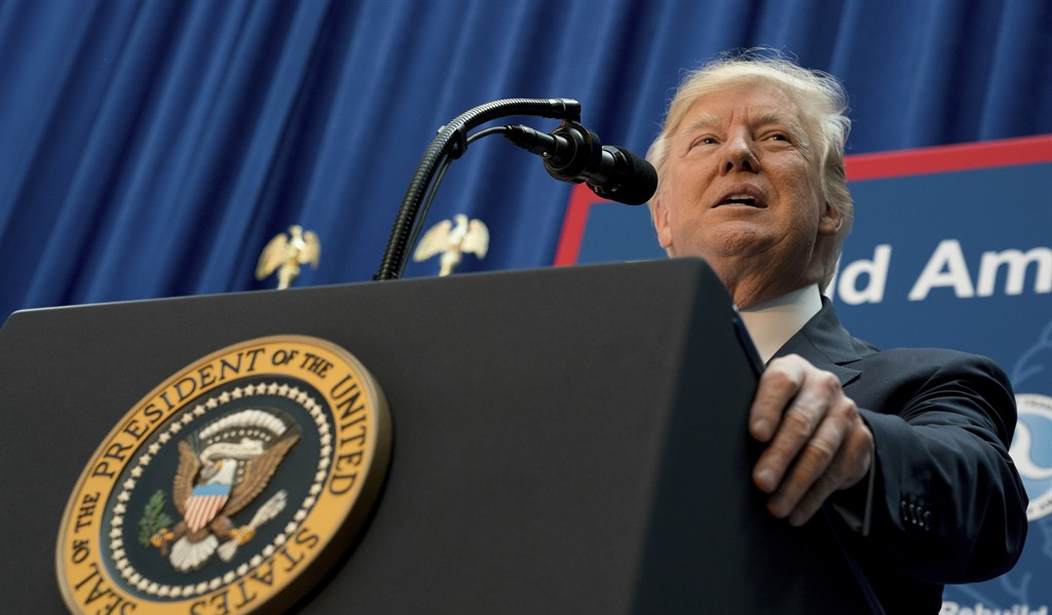Change of pace: For once, it’s not Trump’s pre-presidential statements about Muslims and his since-discarded temporary “Muslim ban” that are cited as the problem here. There is improper discrimination, the court insists, but it’s not religious discrimination — it’s discrimination based on nationality. Under 8 U.S.C. 1152(a)(1)(A), that’s a no-no:
Except as specifically provided in paragraph (2) and in sections 1101(a)(27), 1151(b)(2)(A)(i), and 1153 of this title, no person shall receive any preference or priority or be discriminated against in the issuance of an immigrant visa because of the person’s race, sex, nationality, place of birth, or place of residence.
Why do you need to ban the entire population of a country, even a country whose government sponsors terrorism, when you can vet travelers on a case by case basis as they enter, the court asks? There’s no finding in Trump’s executive order that the current vetting procedures are flawed. But wait — what about 8 U.S.C. 1182(f)?
Whenever the President finds that the entry of any aliens or of any class of aliens into the United States would be detrimental to the interests of the United States, he may by proclamation, and for such period as he shall deem necessary, suspend the entry of all aliens or any class of aliens as immigrants or nonimmigrants, or impose on the entry of aliens any restrictions he may deem to be appropriate.
Same problem, says the court. There are no findings in the order that blocking entire populations is necessary to protect U.S. interests. The president is merely asserting that there are. A different president might have received deference from a court on that point. Not this one. Even if there were findings, reconciling the two statutes means that Trump’s power to bar “any class” of aliens would necessarily exclude using nationality as a class. The same goes for his temporary suspension of refugee admissions. “EO2 does not reveal any threat or harm to warrant suspension of USRAP for 120 days and does not support the conclusion that the entry of refugees in the interim time period would be harmful,” the court notes. “Nor does it provide any indication that present vetting and screening procedures are inadequate.” Besides, hasn’t the initial period to develop “extreme vetting” procedures already lapsed?
Here’s the full (per curiam) opinion. And yes, Trump’s recent travel-ban tweets did come up — in a footnote.
The 9th Circuit decision on President Trump's revised travel ban cites his June 5 tweet https://t.co/qvc7rw61Gn pic.twitter.com/BAxD9pe6Io
— Rebecca Buck (@RebeccaBuck) June 12, 2017
That’s proof that Trump is discriminating impermissibly by nationality, notes the court, rather than distinguishing among individuals. Silver lining to all of this: Because the ruling is based on statutory interpretation rather than constitutional provisions like the Equal Protection Clause, Congress could in theory grant Trump the power to bar entire nations under his presidential power. Good luck getting that past Schumer and Senate Democrats, though. Anyway, on to SCOTUS!
Update: An important footnote from the Times:
The appeals court said Judge Watson had erred in barring the administration from conducting internal reviews of its vetting procedures while the case moved forward. That may turn out to be important as the Supreme Court considers how to address the cases.
The key part of the executive order suspended travel from six predominantly Muslim countries for 90 days to give the administration time to conduct a review. If that review can be completed, the justices may decide that the case is or will soon be moot.








Join the conversation as a VIP Member